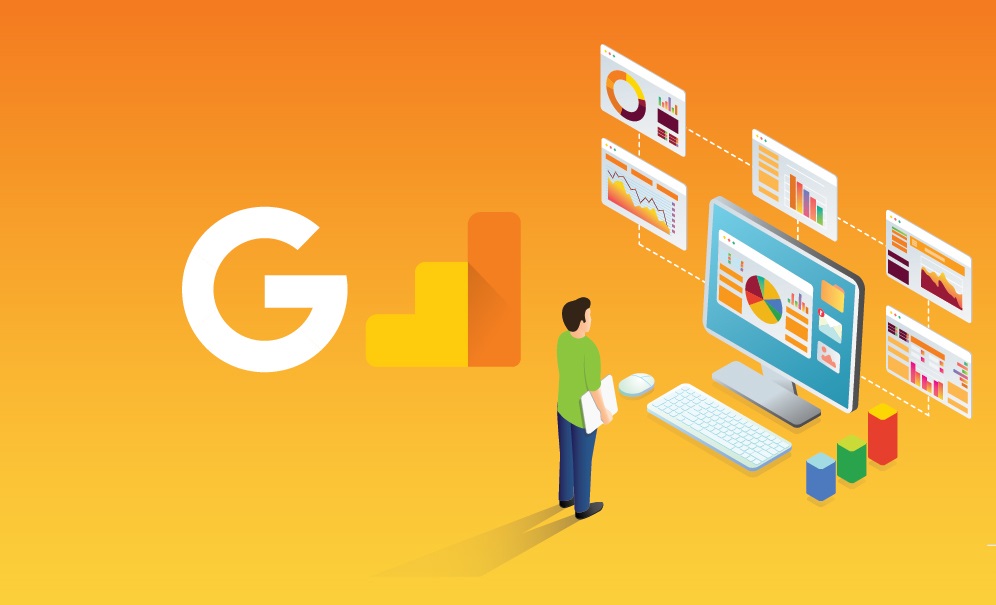Understanding Google Analytics: Its Role and Advantages for Tech Businesses

By: Web Desk | May 22, 2025
What is Google Analytics?
Google Analytics is a powerful web analytics platform offered by Google that enables businesses, developers, and marketers to track and analyze user interactions with websites, mobile apps, and other digital properties. By embedding a small piece of JavaScript code or integrating with software development kits (SDKs), Google Analytics collects data on user behavior, such as page views, session durations, traffic sources, and conversions. It provides detailed insights through customizable reports and dashboards, helping users understand audience engagement and optimize digital experiences. The platform has evolved significantly, with the latest version, Google Analytics 4 (GA4), introducing advanced features like cross-platform tracking, event-based data collection, and machine learning-driven insights. GA4 is designed to adapt to modern digital ecosystems, including privacy-focused environments, making it a versatile tool for data-driven decision-making.
The Role of Google Analytics in Web, Cloud Computing, and IoT
Web
In the web domain, Google Analytics is a cornerstone for understanding user behavior and optimizing website performance. It tracks metrics like:
- Traffic Sources: Where visitors come from (e.g., organic search, social media, paid ads).
- User Engagement: Metrics like bounce rate, pages per session, and average session duration.
- Conversions: Actions such as form submissions, purchases, or sign-ups.
These insights help businesses refine content, improve user experience (UX), and boost search engine optimization (SEO). For example, an e-commerce site can use Google Analytics to identify high-performing product pages or pinpoint where users drop off during checkout, enabling targeted improvements.
Cloud Computing
Google Analytics integrates seamlessly with cloud computing environments, particularly through Google Cloud Platform (GCP). By leveraging cloud infrastructure, GA4 processes vast amounts of data in real time, enabling scalable analytics for businesses with high traffic volumes. Key roles in cloud computing include:
- Data Integration: Combining web and app data with other sources (e.g., CRM systems) via BigQuery, Google’s cloud-based data warehouse.
- Scalability: Handling large datasets from global audiences without performance bottlenecks.
- Real-Time Insights: Providing instant feedback on campaigns or user interactions, crucial for dynamic cloud-based applications.
For instance, a SaaS company hosted on GCP can use Google Analytics to monitor user interactions with its web app, correlate this with server performance data, and optimize resource allocation in the cloud.
IoT (Internet of Things)
In the IoT space, Google Analytics plays a growing role by tracking interactions between connected devices and digital platforms. While IoT devices generate massive data volumes, Google Analytics can aggregate and analyze user-facing interactions, such as:
- Device Engagement: How users interact with IoT device interfaces (e.g., mobile apps controlling smart home devices).
- Event Tracking: Monitoring specific actions, like a smart thermostat’s temperature adjustments or a wearable’s fitness tracking.
- Cross-Platform Insights: Connecting IoT data with web and app analytics for a unified view of user behavior.
For example, a smart home company can use Google Analytics to track how users engage with a mobile app controlling IoT devices, identifying popular features or usability issues. Integration with BigQuery allows further analysis of raw IoT data, such as device performance metrics, to inform product development.
Advantages of Google Analytics for Tech Businesses
Google Analytics offers numerous benefits for tech businesses, making it a critical tool for driving growth and efficiency:
- Data-Driven Decision Making
With detailed reports on user behavior, demographics, and acquisition channels, tech businesses can make informed decisions. For example, a startup can identify which marketing channels drive the most sign-ups and allocate budgets accordingly.
- Cost-Effectiveness
Google Analytics offers a robust free tier, making it accessible for startups and small businesses. Even the paid version (Google Analytics 360) is cost-effective for enterprises needing advanced features like higher data limits and dedicated support.
- Scalability and Integration
Built on Google’s cloud infrastructure, Google Analytics scales effortlessly to handle data from small websites to global IoT ecosystems. Its integration with tools like Google Ads, BigQuery, and Data Studio enhances its utility for tech businesses with complex tech stacks.
- Enhanced User Experience
By analyzing user journeys, businesses can identify pain points, such as slow-loading pages or high drop-off rates, and optimize their platforms. For instance, a tech company can use funnel analysis to streamline a SaaS product’s onboarding process.
- Privacy and Compliance
GA4 is designed with privacy in mind, supporting features like cookieless tracking and compliance with regulations like GDPR and CCPA. This is crucial for tech businesses operating in regulated markets.
- Real-Time Insights
Real-time reporting enables tech companies to monitor campaign performance, troubleshoot issues, or track product launches as they happen. For example, an IoT company can monitor app usage spikes during a new device rollout.
- Machine Learning Capabilities
GA4’s AI-driven features, such as predictive analytics, help businesses anticipate trends, like churn risk or potential high-value customers, enabling proactive strategies.
Conclusion
Google Analytics is a versatile and indispensable tool for tech businesses navigating the complexities of web, cloud computing, and IoT environments. By providing actionable insights into user behavior, it empowers companies to optimize their digital properties, enhance user experiences, and drive growth. Its scalability, cost-effectiveness, and integration with modern tech stacks make it a go-to solution for startups and enterprises alike. Whether you’re running a website, a cloud-based app, or an IoT ecosystem, Google Analytics equips you with the data to stay ahead in a competitive digital landscape. For more information or to get started, visit Google Analytics and explore its features tailored to your business needs.



